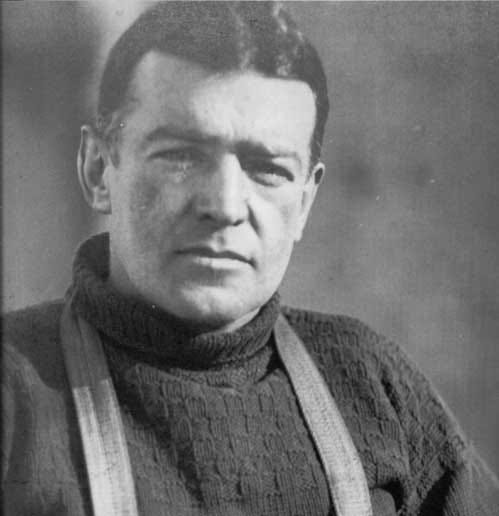Antarctica by Gabrielle Walker
Antarctica is the only place on Earth that does not have human history. It is the windiest, coldest and most hostile continent. Antarctica does not belong to anyone. Instead, it is governed by a group of 12 countries whose scientists had been active in Antarctica during the International Geophysical Year (IGY) of 1957-1958. On 1 December 1959 these twelve countries signed the Antarctic Treaty that says that the Antarctica shall be used for peaceful purposes only. Article II of the Treaty provides that “Freedom of scientific investigation in Antarctica and cooperation toward that end… shall continue…”. The treaty has since been acceded to by many other nations. Ever since, scientific research has been the main activity on the Antarctic continent.
Gabrielle Walker is fascinated by Antarctica. She has visited five times and stayed for months at McMurdo-the main American base on the coast and unofficial capital of Antarctica. She stayed, as a guest, in the Italian, French, British and New Zealand’s bases. She collected some astonished stories. In this book, she weaves together all the different aspects of Antarctica. The uniqueness of the place, the valleys that time has forgotten and its mysterious underground lakes that are teeming with bacterial life. What it feels to be there and why people are drawn to it. “Antarctica is a place of science, political football, holder of secrets about the Earth’s past, and ice crystal ball that ultimately predict all of our futures.”
Walker also shares some stories of the heroic age of Antarctic exploration. If I could travel back in time, I would go to 1909 to meet Ernest Shackleton. He is my favourite, an extraordinary leader and an incredibly charismatic man. Shackleton and Captain Scott went to Antarctica at the same time, and they both tried to go to the South Pole. Scott was a bit more awkward with people and he didn’t like very much to have his authority challenged. In 1909, Shackleton and his team were down there on a trip to South Pole and they went further and further than anyone has been. They have reached the end of the flat white plain of the Great Ice Barrier, and in front of them rose a range of icy mountains. They laboured up the glacier, and begun to suffer from the high-altitude sickness, but their progress was worryingly slow. Shackleton realised that they didn’t have enough food, and he started to calculate. He knew they could reach the Pole. They were just 100 miles away. But he also knew there was not enough food to sustain them for the journey back. And he did the bravest thing any heroic explorer ever done. He said to his men that they could reach the Pole and be heroes, but they won’t be able to go back home. They turned back. ‘Better a live donkey than a dead lion,’ he apparently said to his wife. But Shackleton was not a donkey. He was a man of extraordinary courage.
For scientists, Antarctica is an ideal location to study local-to-global scale climate change. That is because it acts like an archive for ancient history. As the snow settles on the ice, air fills the space between the ice crystals. When the snow gets packed down by subsequent layers, the space between the crystals is eventually sealed off, trapping a small sample of the atmosphere in newly formed ice. These tiny bubbles of air provide a record of past atmospheric composition and their analysis shows that the carbon dioxide (CO2) concentration began to increase significantly in the 19th century. Ice core records extending back 800,000 years show that during that time, CO2 concentrations remained within the range of 170 to 300 ppm throughout many “ice age” cycles and no concentration above 300 ppm is seen in ice core records until the past 200 years.
Climate change is already negatively impacting Antarctica. The West Antarctic Peninsula is one of the fastest warming areas on Earth. However, Antarctica is a big place and climate change is not having a uniform impact on the continent. While some areas are experiencing decreasing in sea-ice extent, in others, sea-ice is increasing. But sea-ice doesn’t play a role in sea-level rise or fall. It is the melting land ice that contributes to sea-level rise and research shows one thing: Antarctica is losing land ice as a whole and these losses are accelerating.
So, what about the future? To some extent, that’s down to us. Either way, I don’t think Antarctica really cares. “Antarctica,” writes Gabrielle Walker, “is bigger than all of us, bigger than our technologies, our human strengths and weaknesses, our eagerness to build and our capacity to destroy. Enough ice could slide into the sea to turn West Antarctica into an island archipelago, and to raise the sea to heights that could swamp coastal cities, without causing so much as a flutter in the continent’s while heart. And even when all the ice finally does melt that will not be the end of Antarctica. The Sun is naturally warming as it ages, and some distant day, perhaps millions of years in the future, the white continent will turn green again no matter what we do. When this happens, as it must, we humans will probably not be there to witness it. But someone or something else surely will.”
Before he left for home, after his last time in Antarctica in 1916, Ernest Shackleton wrote a poem in the visitor’s book of one of the local dignitaries in Chile.
We were the fools who could not rest
In the dull earth we left behind
But burned with passion for the South
And drunk strange frenzy from its wind
The world where wise men sit at ease
Fades from our unregretful eyes
And thus across unchartered seas
We stagger on our enterprise.


